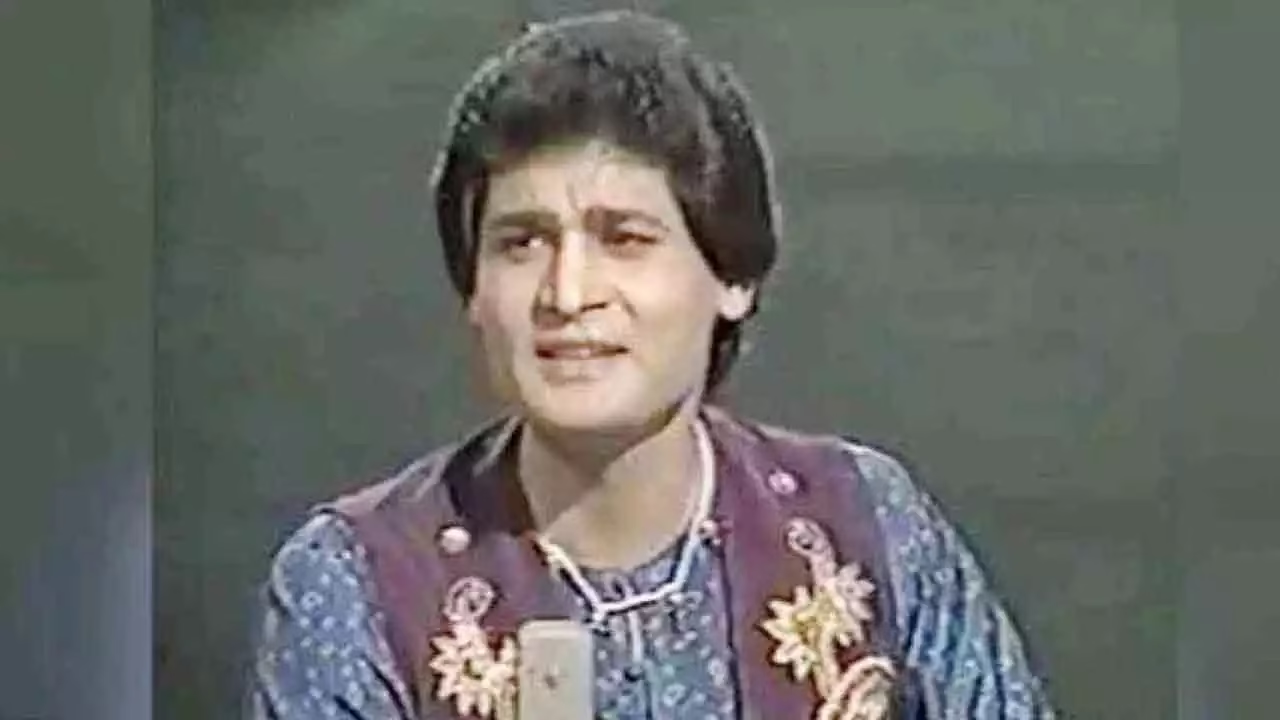The Musical Torchbearer of Patiala Gharana
Born on September 25, 1955, in Lahore, Asad Amanat Ali Khan was destined to be a musical legend. A proud representative of the Patiala Gharana, one of South Asia’s most prestigious classical music lineages, he inherited his talent from his father, Ustad Amanat Ali Khan, but carved a name for himself that stood tall and independent.
From an early age, Asad showed extraordinary promise. He began his singing career at just 10 years old, and by his teenage years, he had already become a known name in Pakistan’s classical and semi-classical music circles.
Early Recognition and Rise to Stardom
Although he had many early performances, it was his rendition of his father’s soulful ghazal, “Insha Ji Utho Ab Kuch Karo”, that first caught the public’s attention. The emotional depth and vocal control he displayed made it clear that a new star had arrived. This ghazal not only reconnected the nation with a classic but also reintroduced it through a fresh and youthful voice.
However, it was his iconic Punjabi song “Imran Langhiyan Paban Bhar” that catapulted Asad Amanat Ali Khan to nationwide fame. This folk-inspired tune resonated across borders and became a timeless hit, still loved by classical and non-classical listeners alike.
A Bridge Between Classical and Modern Audiences
Asad Amanat Ali Khan had the rare ability to strike a balance between traditional classical music and the evolving tastes of modern audiences. Whether he performed a ghazal, a thumri, or a semi-classical piece, his command over ragas, pitch, and lyrical expression was always mesmerizing.
Unlike many classical musicians who remained confined to elite circles, Asad’s voice reached ordinary people through radio, television, and live performances. His collaborations with Pakistan Television (PTV) during the golden era of Pakistani music further cemented his place in the hearts of millions.
Award and Recognition
In recognition of his contributions to Pakistani music, Asad Amanat Ali Khan was honored with the Presidential Pride of Performance Award. This prestigious award celebrated his role in preserving and promoting the country’s musical heritage, as well as making classical music accessible to the younger generation.
Final Days and Untimely Death
Tragically, not long after receiving the national honor, Asad fell seriously ill. Seeking advanced medical care, he traveled to London for treatment. Sadly, on April 8, 2007, he suffered a fatal heart attack at the age of just 52.
His passing was a significant loss not only for Pakistan but for music lovers around the world. He was laid to rest in his homeland, leaving behind a void in the world of ghazals and classical music that is still felt today.
A Legacy That Lives On
Though Asad Amanat Ali Khan is no longer among us, his music remains timeless. His recordings continue to inspire vocalists, music students, and fans who find solace and joy in his voice. His ability to express profound emotion through melody is a gift that continues to touch hearts to this day.
His son, Shafqat Amanat Ali, has also become a renowned singer, proving that the flame of the Patiala Gharana still burns bright. But even as new voices rise, Asad Amanat Ali Khan’s legacy remains untouchable—a symbol of grace, talent, and true devotion to the art of music.
Asad Amanat Ali Khan was more than just a singer—he was a guardian of tradition, a voice of the soul, and a cultural icon. His contributions to Pakistani music continue to echo through generations, proving that real talent never dies—it only grows louder with time.
On every anniversary of his birth and passing, music lovers remember him not with sadness, but with gratitude—for giving the world songs that still stir the soul and connect us to something greater.



